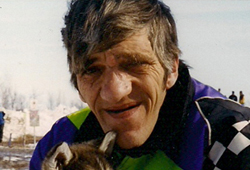Summary
Definition
History and exam
Key diagnostic factors
- coarsening of facial features
- soft-tissue and skin changes
- carpal tunnel syndrome
- joint pain and dysfunction
- snoring
- alterations in sexual functioning
- history or family history of inherited syndrome
Other diagnostic factors
- fatigue
- hypertension, arrhythmias
- organomegaly
- increased appetite, polyuria/polydipsia
- headaches
- visual field defects
- signs and symptoms of hypopituitarism
- cranial nerve palsies (e.g., ophthalmoplegia)
Risk factors
- GPR101 over-expression
- multiple endocrine neoplasia type 1 syndrome
- isolated familial acromegaly
- McCune-Albright syndrome
- Carney complex
Diagnostic tests
1st tests to order
- serum insulin-like growth factor 1 (IGF-1)
- oral glucose tolerance test (OGTT)
- random serum growth hormone (GH)
- pituitary MRI or CT scan
Tests to consider
- GH-releasing hormone
- chest and/or abdominal CT scanning
- total body scintigraphy with radio-labelled somatostatin analogue (octreoscan)
- PET scan with radio-labelled somatostatin analogue (Gallium-68 DOTATATE)
- plasma cortisol
- prolactin
- thyroid-stimulating hormone (TSH) and free thyroxine
- estradiol or testosterone
- visual field testing
Treatment algorithm
enclosed pituitary tumour
unresectable pituitary tumour (with neural or vascular impingement/invasion)
non-pituitary adenoma aetiology
pituitary adenoma progression or recurrence
Contributors
Authors
Maria Fleseriu, MD, FACE
Professor of Medicine (Endocrinology) and Neurological Surgery
Director
Pituitary Center
Oregon Health & Science University
Portland
OR
Disclosures
MF declares that she received grants to her institution from Chiesi (formerly Amryt), Crinetics, Ionis, and Recordati. She has received occasional scientific consulting fees from Camurus, Crinetics, Chiesi (formerly Amryt), Ipsen, and Recordati. MF is an author of a number of references cited in this topic and has served on the Board of the Pituitary Society.
Acknowledgements
Professor Fleseriu would like to gratefully acknowledge Professor Ariel Barkan, Dr Omar Serri and Dr Sophie Vallette, previous contributors to this topic.
Disclosures
AB has received lecturing fees and research support from Novartis and Ipsen and is an author of several references cited in this topic. OS has received lecturing and educational program fees from Novartis Canada and is an author of a reference cited in this topic. SV has received fees for lecturing and attending a symposium and is an author of a reference cited in this topic.
Peer reviewers
Robert D. Murray, MBBS, BSc, FRCP, MD
Consultant Endocrinologist & Honorary Senior Lecturer
Department of Endocrinology
Leeds Centre for Diabetes & Endocrinology
Leeds Teaching Hospitals NHS Trust
St James’s University Hospital
Leeds
UK
Disclosures
RDM declares that he has no competing interests.
Shlomo Melmed, MD
Senior Vice President and Dean
Cedars Sinai Medical Center
Los Angeles
CA
Disclosures
SM has research grants of over 6 figures USD. SM is an author of a number of references cited in this topic.
Laurence Kennedy, MD, FRCP
Professor and Chief
Chairman
Department of Endocrinology, Diabetes and Metabolism
Cleveland Clinic
Cleveland
OH
Disclosures
LK declares that he has no competing interests.
Peer reviewer acknowledgements
BMJ Best Practice topics are updated on a rolling basis in line with developments in evidence and guidance. The peer reviewers listed here have reviewed the content at least once during the history of the topic.
Disclosures
Peer reviewer affiliations and disclosures pertain to the time of the review.
References
Key articles
Fleseriu M, Langlois F, Lim DST, et al. Acromegaly: pathogenesis, diagnosis, and management. Lancet Diabetes Endocrinol. 2022 Nov;10(11):804-26. Abstract
Katznelson L, Laws ER Jr, Melmed S, et al; Endocrine Society. Acromegaly: an endocrine society clinical practice guideline. J Clin Endocrinol Metab. 2014 Nov;99(11):3933-51.Full text Abstract
Giustina A, Barkhoudarian G, Beckers A, et al. Multidisciplinary management of acromegaly: a consensus. Rev Endocr Metab Disord. 2020 Dec;21(4):667-78. Abstract
Fleseriu M, Biller BMK, Freda PU, et al. A Pituitary Society update to acromegaly management guidelines. Pituitary. 2021 Feb;24(1):1-13.Full text Abstract
Giustina A, Barkan A, Beckers A, et al. A consensus on the diagnosis and treatment of acromegaly comorbidities: an update. J Clin Endocrinol Metab. 2020 Apr 1;105(4):dgz096. Abstract
Reference articles
A full list of sources referenced in this topic is available to users with access to all of BMJ Best Practice.

Differentials
- acromegaloidism or pseudo-acromegaly
More DifferentialsGuidelines
- A Pituitary Society update to acromegaly management guidelines
- A consensus on the diagnosis and treatment of acromegaly comorbidities: an update
More GuidelinesLog in or subscribe to access all of BMJ Best Practice
Use of this content is subject to our disclaimer